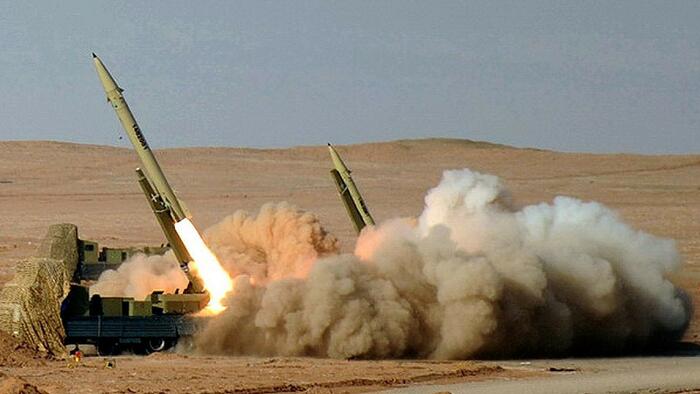In recent developments, Axios reports that Iran is preparing for significant retaliation against Israel following its aerial strikes on military facilities, which occurred in the early hours last Saturday. These strikes were anticipated as a counter-response to an earlier ballistic missile attack on October 1. While many observers believed the escalating tensions between Iran and Israel had subsided, indicated by falling oil prices, Israeli intelligence reports suggest otherwise. According to Israeli officials, Iran is allegedly organizing an attack on Israel from Iraqi territory, potentially occurring before the upcoming U.S. presidential elections. This planned retaliation is expected to include a substantial deployment of drones and ballistic missiles, in contrast to the sporadic drone strikes by Iran-aligned paramilitary units observed during the ongoing conflict in Gaza.
The threats escalated as Israeli sources reported that Iran is mobilizing ballistic missiles, indicating a shift in strategy. Iranian Revolutionary Guard Corps (IRGC) commander Hossein Salami stated that Iran’s response would be unlike anything Israel anticipates. This rhetoric suggests a significant and potentially dangerous escalation in military operations is on the horizon. CNN corroborated the situation by quoting an Iranian military source declaring that Israel’s recent actions would face a “definitive and painful response.” Importantly, this source hinted that the timing for the Iranian retaliation would likely align with the U.S. election period, indicating a deliberate calculation on Iran’s part to maximize the political impact of their actions.
Iran’s initial reactions to Israel’s strikes may have downplayed the seriousness of the attacks; however, the latest pronouncements reflect a hardened stance and a commitment to retaliate decisively. The indication that Iran is plotting an attack adds to the rising tensions in the region. Notably, while Iranian officials have not specified when such an attack might occur, the focus on the U.S. election suggests they aim to leverage this geopolitical moment for their strategic interests. This escalation of rhetoric and military preparedness could also have implications for the broader regional stability that has recently shown signs of improvement.
In the context of these developments, Iraq’s government has expressed frustration over Israeli airspace violations during the recent military operations, formally protesting these breaches to the United Nations. Reports stated that around one hundred Israeli jets participated in the attacks while flying over Iraqi territory, a tactic reminiscent of past Israeli operations in Syria where they typically launch strikes from adjacent countries. This raises further questions about Iraq’s sovereignty and the potential for heightened diplomatic tensions in the area.
As negotiators from the U.S. and Israel reportedly approach a ceasefire with Hezbollah, these evolving dynamics complicate the potential for peace. Any large-scale offensive from the “Iranian axis” could significantly impact these diplomatic efforts and further destabilize the already precarious situation. The interconnectedness of these regional players underscores a fragile balance where the actions of one actor can reverberate across borders, affecting alliances and tensions in unpredictable ways.
In summary, the current trajectory indicates an escalation in hostilities between Iran and Israel, with impending military actions poised to unfold. The situation remains fluid, and as both sides prepare for potential conflicts, the effects on regional stability and international relations could be profound. The intertwined interests of the U.S. and their allies will be critical in shaping the outcomes of these developments while highlighting the delicate nature of peace in the historically turbulent Middle East.

